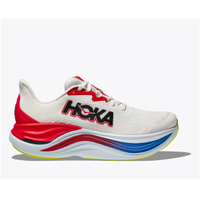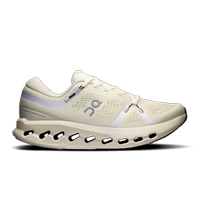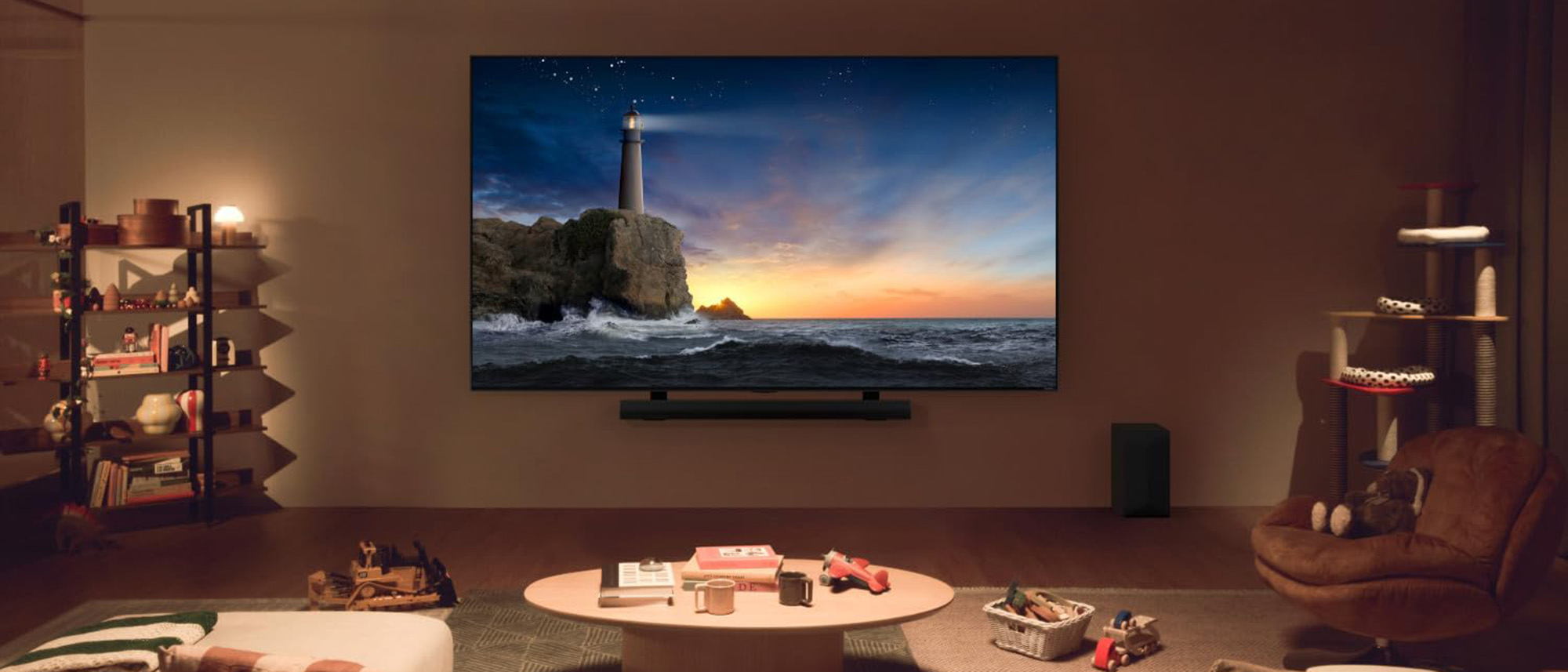Best running shoes 2025: expert tested and rated
The best running shoes from Asics, Brooks, Saucony and more.
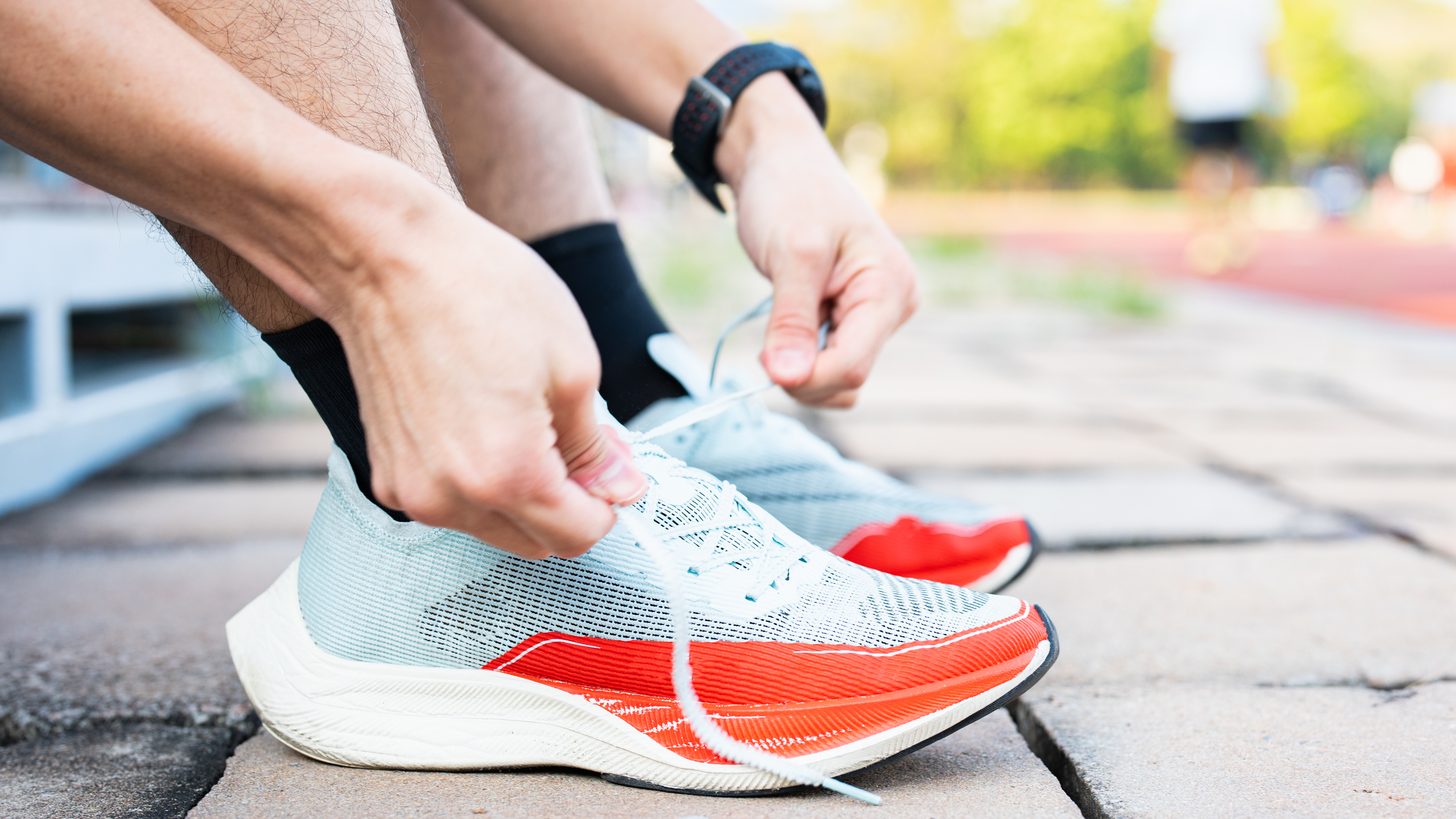
With so many running shoes out there, it can be overwhelming to choose the right pair. From speed and agility to support and style, each shoe offers something unique. While it might be tempting to go for the flashiest or cheapest option, picking the right shoe for your specific needs is key to staying comfortable, supported, and injury-free.
That's where we come in. We’ve spent hours testing dozens of running shoes and we’re here to help you find the best option for your running needs. In this guide, we’ll walk you through what makes each shoe stand out and how different features cater to different types of runners.
Before diving into our top picks, we recommend visiting a local running store for a gait analysis. It’s a free service where specialists assess your movement and foot strike, to help you find the best shoe for your form.
If you already know your gait type and are ready to find your perfect pair, keep reading!
The quick list
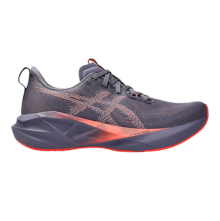
The Asics Novablast 5 is a fantastic choice for runners of all levels, delivering an impressive mix of comfort, responsiveness, and versatility. Whether you're rotating it with other shoes or relying on it for every run, it’s a great shoe at a great price.
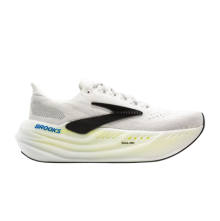
The Glycerin Max is built for marathon training, with plenty of plush cushioning to offer and a high-stack support to handle long miles with ease. It features a rockered design that helps you roll smoothly and with speed.
Read more below
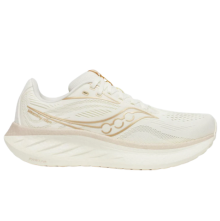
The Saucony Ride 18 isn't a super flashy shoe, there isn't any carbon plate or max-cushioning going on in this shoe, but it's just a really reliable and comfortable running shoe.
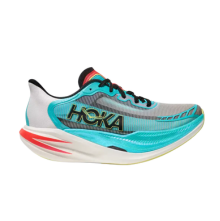
The Hoka Cielo X1 2.0 is a lightweight, fast racing shoe with great bounce and grip. It’s not the most stable option, but it makes up for this with the speed and smooth, rolling feel it delivers on race day.
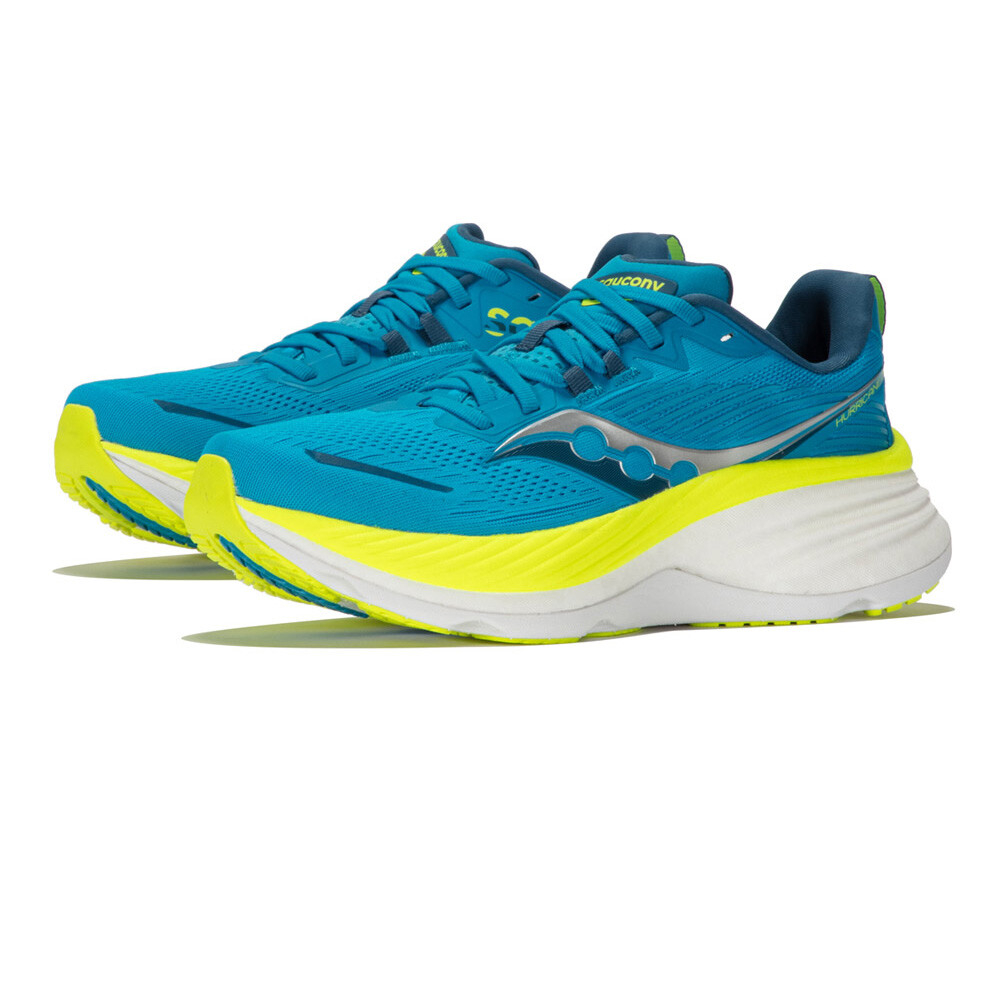
The Saucony Hurricane 24 is an extremely comfortable running shoe packed into a stable design. Its cushioned midsole provides lasting support, while the structured build helps keep each stride steady and efficient.
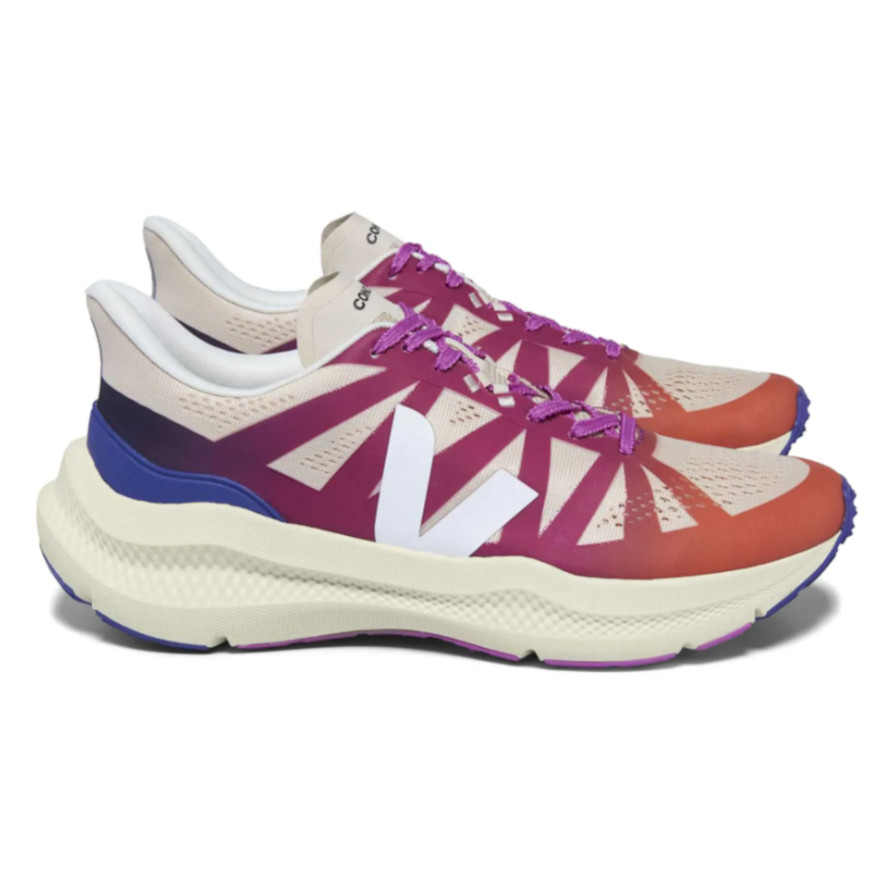
Veja are a brand that pride themselves on making shoes with eco-friendly and sustainable materials and this is the best Veja running shoe we've tested to date thanks to the Condor 3's supreme comfort.
Read more below
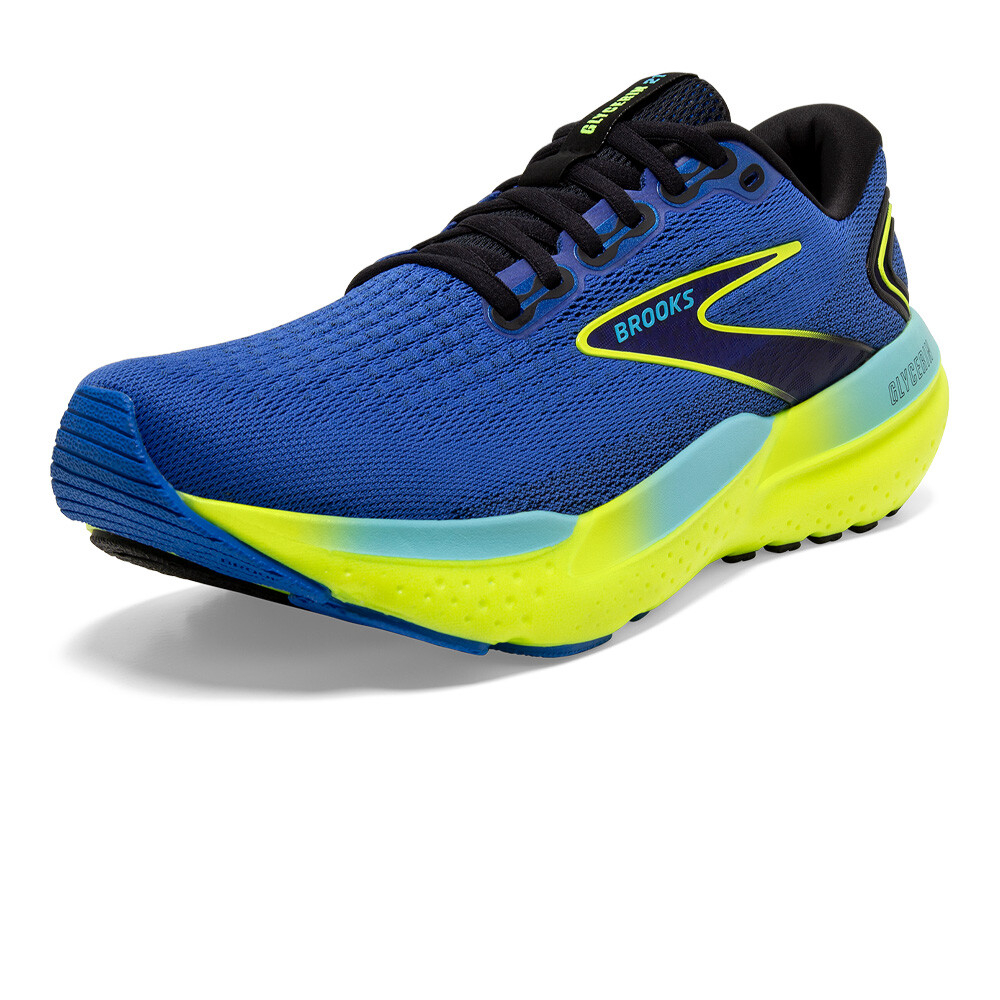
Known as being Brooks’ ‘softest shoe’, the Glycerin is one of the most popular running shoes around, and the Glycerin 21 is our favorite version of the shoe yet.
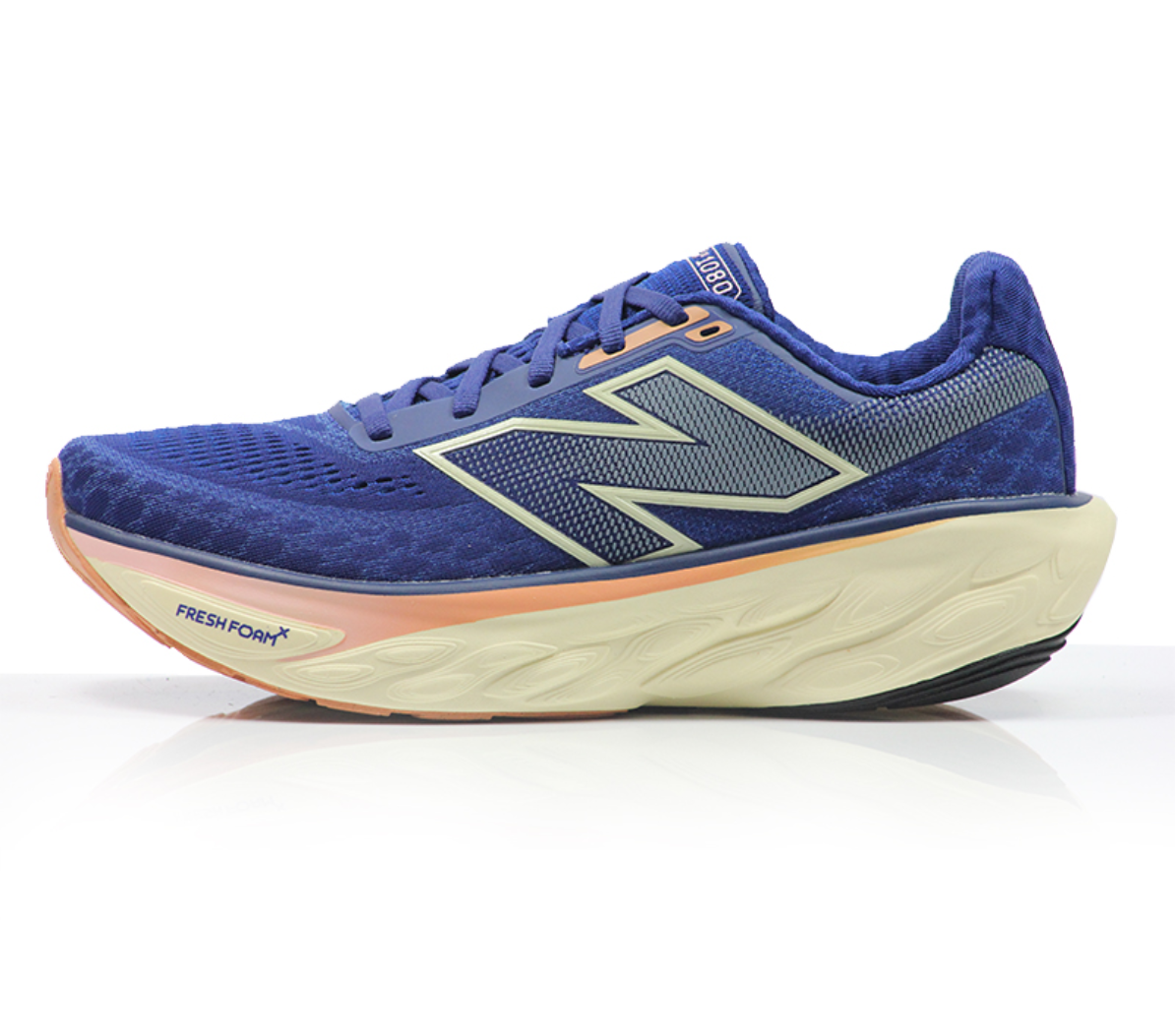
The New Balance Fresh Foam X 1080v14 is a do-it-all running shoe with a well-cushioned yet responsive feel. Its stable base and smooth transition make it a great choice for everything from relaxed recovery runs to longer efforts, offering comfort without feeling sluggish.
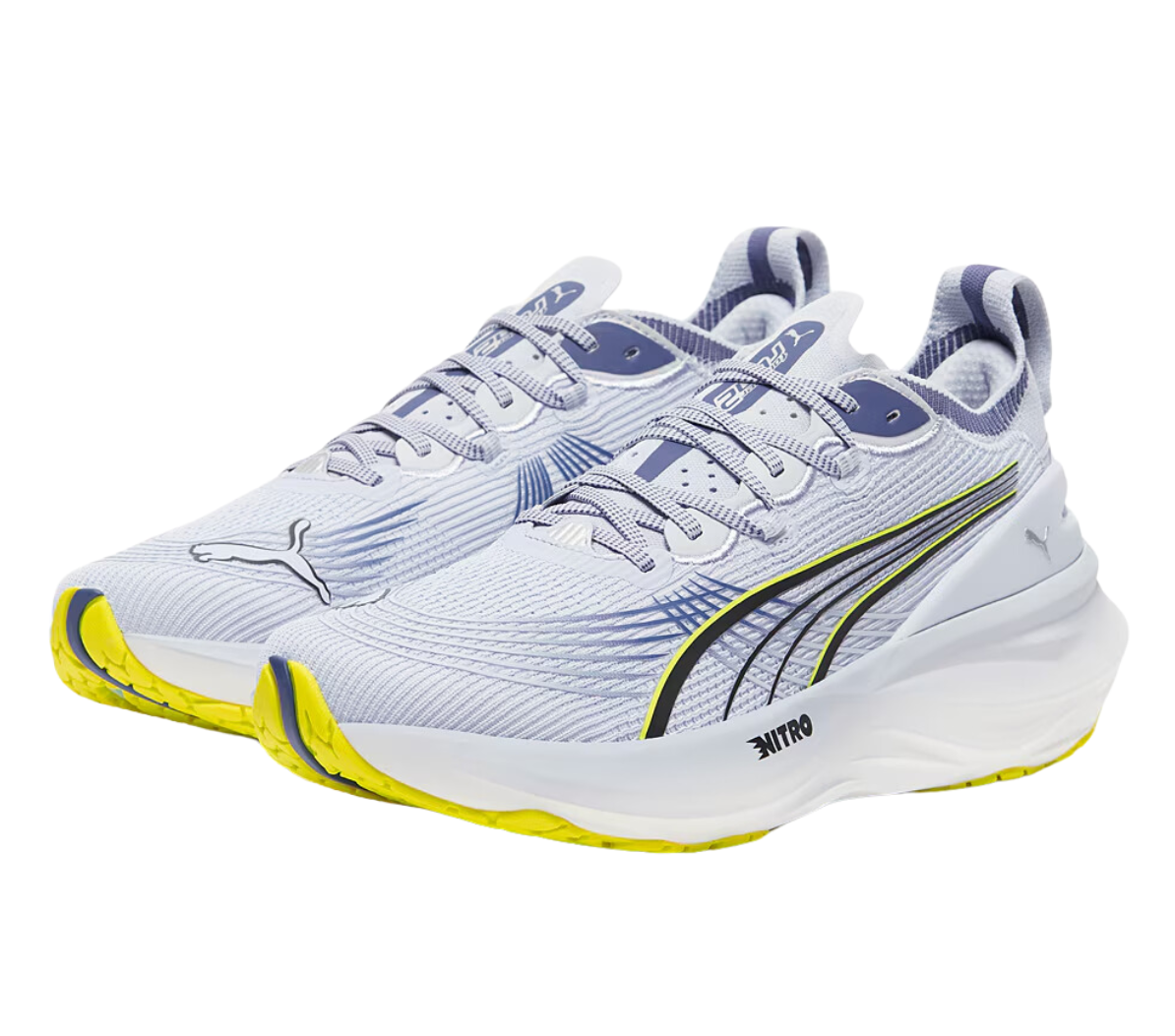
The Puma ForeverRun Nitro 2 is a fantastic stability shoe to launch this year. Its wider base and supportive design make it ideal for stability-seeking runners, while neutral runners will appreciate its comfort. Affordable and versatile, it excels in daily training.
Click to view more products...
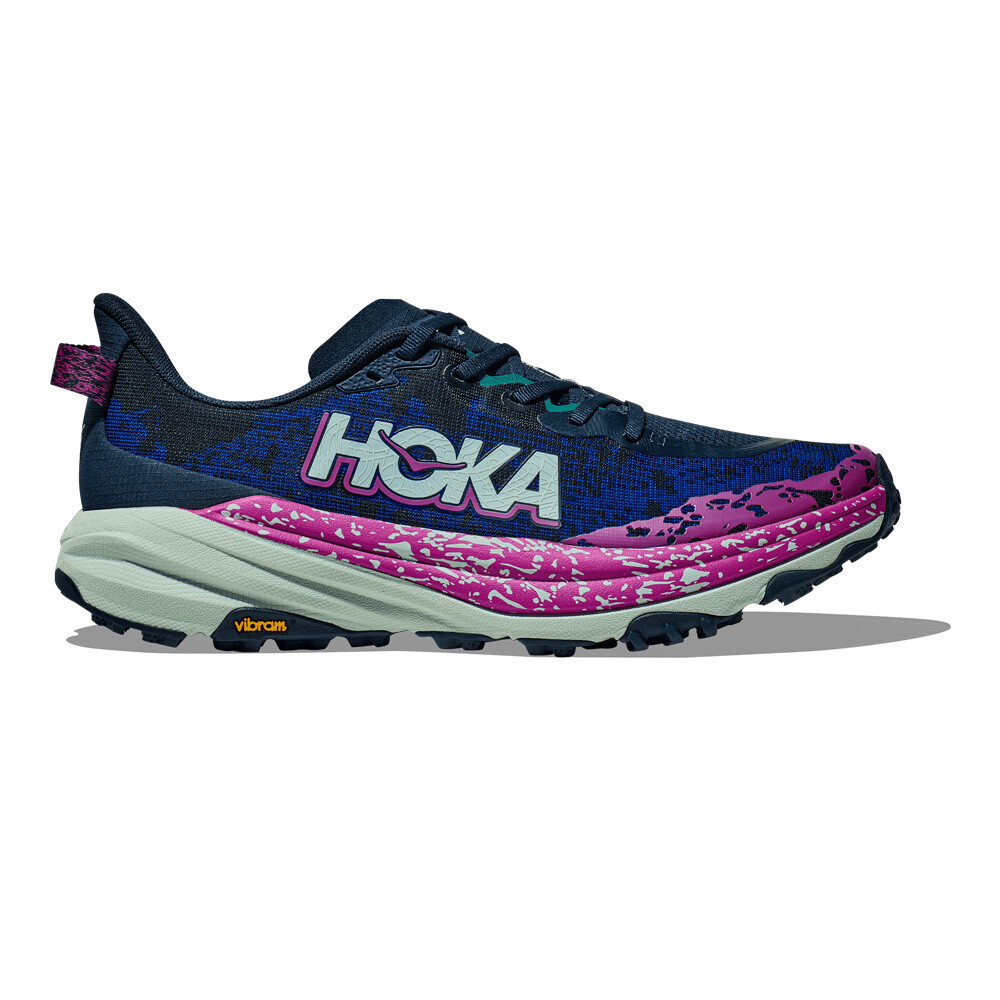
The Hoka Speedgoat 6 is a versatile trail shoe that provides reliable traction across varied terrain, from muddy forest paths to rugged mountain trails. It boasts comfort on long runs while remaining lightweight for quicker off-road miles.
Read more below
How we test the best running shoes
We put running shoes to the test by doing what we know best—running in them! While choosing the right shoe depends on your feet and running style, our experience with testing the market’s top models over the years helps us spot the standouts.
Each shoe is tested for at least 30 miles, during which we assess them for performance, comfort, and fit. We take them through a variety of runs to see how they hold up at different paces and distances. We also check how they handle on various terrains, from slick roads to muddy trails.
Finally, we factor in the price, comparing it to other shoes in the same category to ensure you’re getting the best value
The best running shoes you can buy today
For some categories we couldn't pick just one running shoe for each so make sure to scroll through the full guide to find out which brands and designs made our list and why.
Best running shoe overall
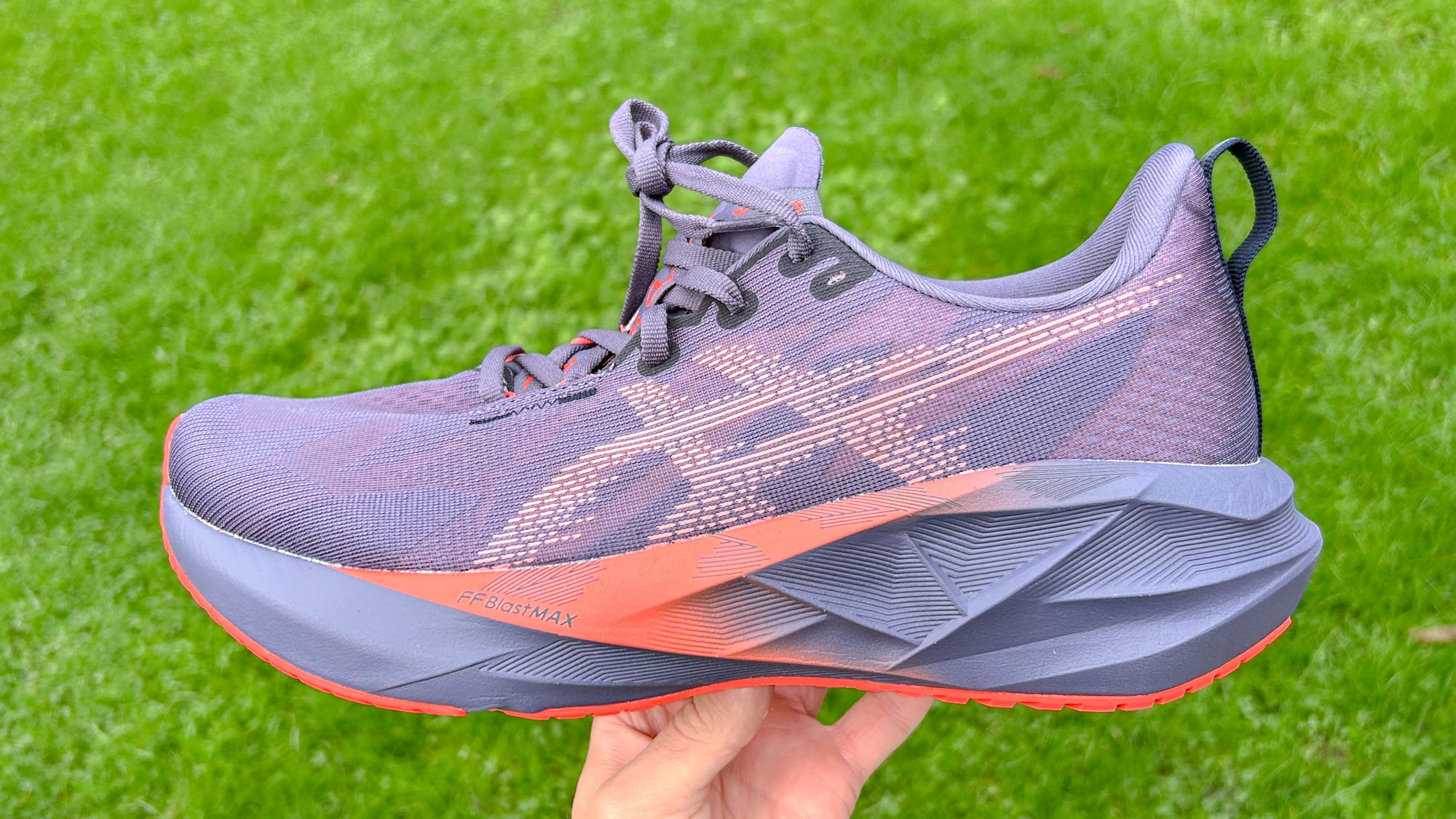
Specifications
Reasons to buy
Reasons to avoid
If you're searching for a running shoe that effortlessly balances comfort, speed, and value, look no further than the Asics Novablast 5. Whether you're just starting out or logging your 100th mile of the week, this shoe rises to the occasion with a perfect blend of softness, support, and speed.
We’ve tested every version of the Novablast, and this latest model refines what already made the shoe great. The FF Blast Max Plus midsole provides a soft yet stable ride, absorbing impact without feeling mushy. Compared to the Novablast 4, the updated heel bevel makes landings feel smoother, especially for heel strikers. It’s plush without being sluggish, so you can use it for easy miles, long runs, and even some faster efforts.
Another standout feature is how lightweight the shoe is for its level of cushioning. At just 9.6oz (men’s size 10), it competes with firmer, speed-focused trainers while still offering the comfort of premium cushioned models like the Asics Gel-Nimbus 26. The updated outsole also grips well in wet conditions so you have yourself a reliable year-round option.
Tester: Nick Harris-Fry
- Read our full Asics Novablast 5 review
Best running shoe for marathon training
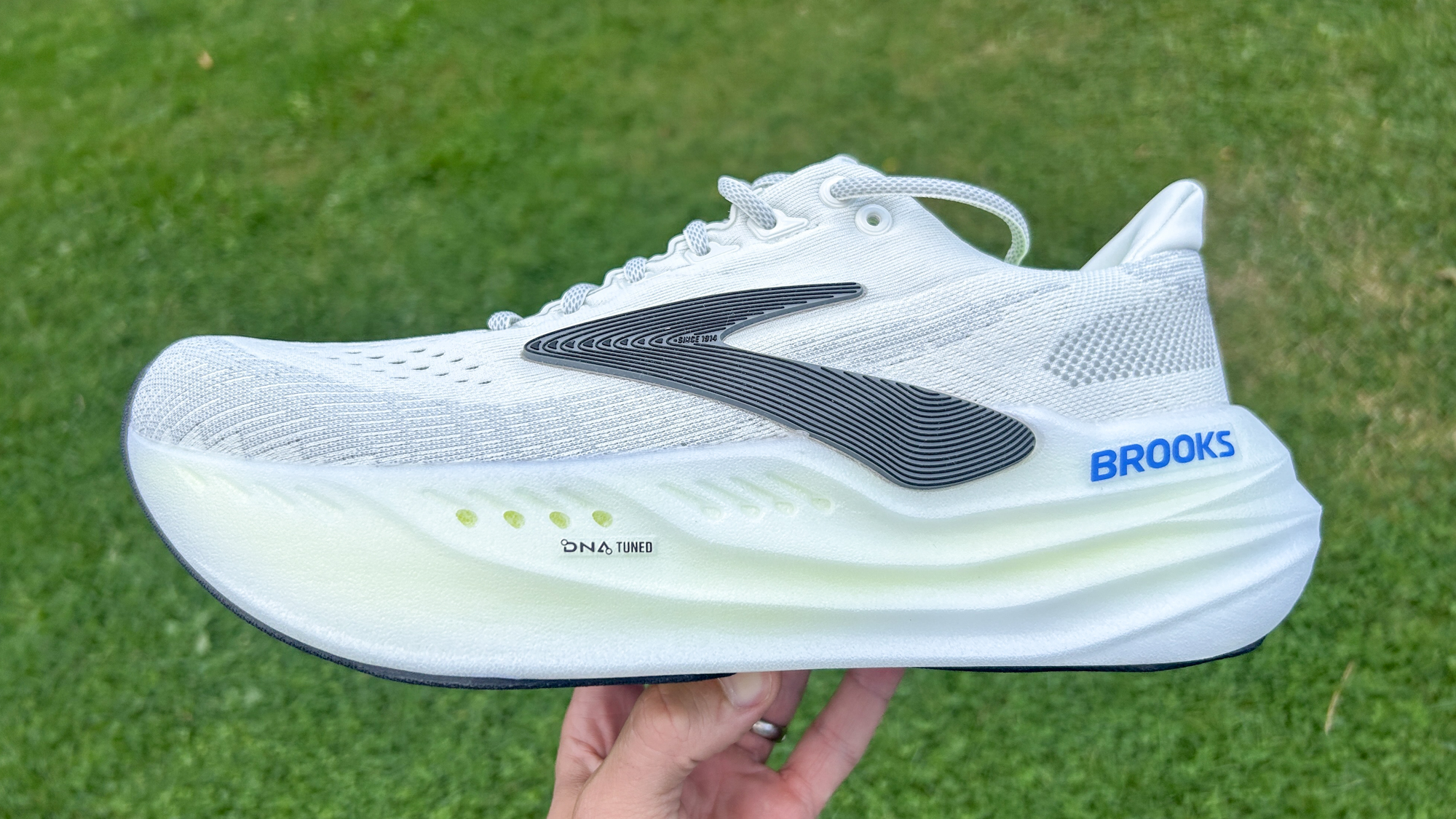
Specifications
Reasons to buy
Reasons to avoid
The Brooks Glycerin Max is the most cushioned running shoe Brooks has ever made, and a perfect companion for marathon training. With a high stack of cushioning—45mm at the heel and 39mm at the forefoot—this is a running shoe that provides plenty of shock absorption to keep your legs feeling fresh over long distances.
Despite all that cushioning, the shoe doesn’t feel overly heavy, thanks to its rockered design, which helps you roll smoothly from heel to toe. While it’s not the fastest option for speedwork, it can still handle tempo runs and feels stable even on long efforts.
The Glycerin Max also features Brooks' nitrogen-infused DNA Tuned foam, which is designed to offer both cushioning and responsiveness. The midsole uses larger, softer foam cells in the heel for a plush landing, while smaller, denser cells in the forefoot adding to a snappier toe-off.
Combined with a breathable mesh upper and a padded heel collar for added support, this shoe delivers a comfortable and stable ride for runners tackling high-mileage training.
Tester: Jessica Downey, Nick Harris-Fry
- Read our full Brooks Glycerin Max review
Best running shoe for beginners
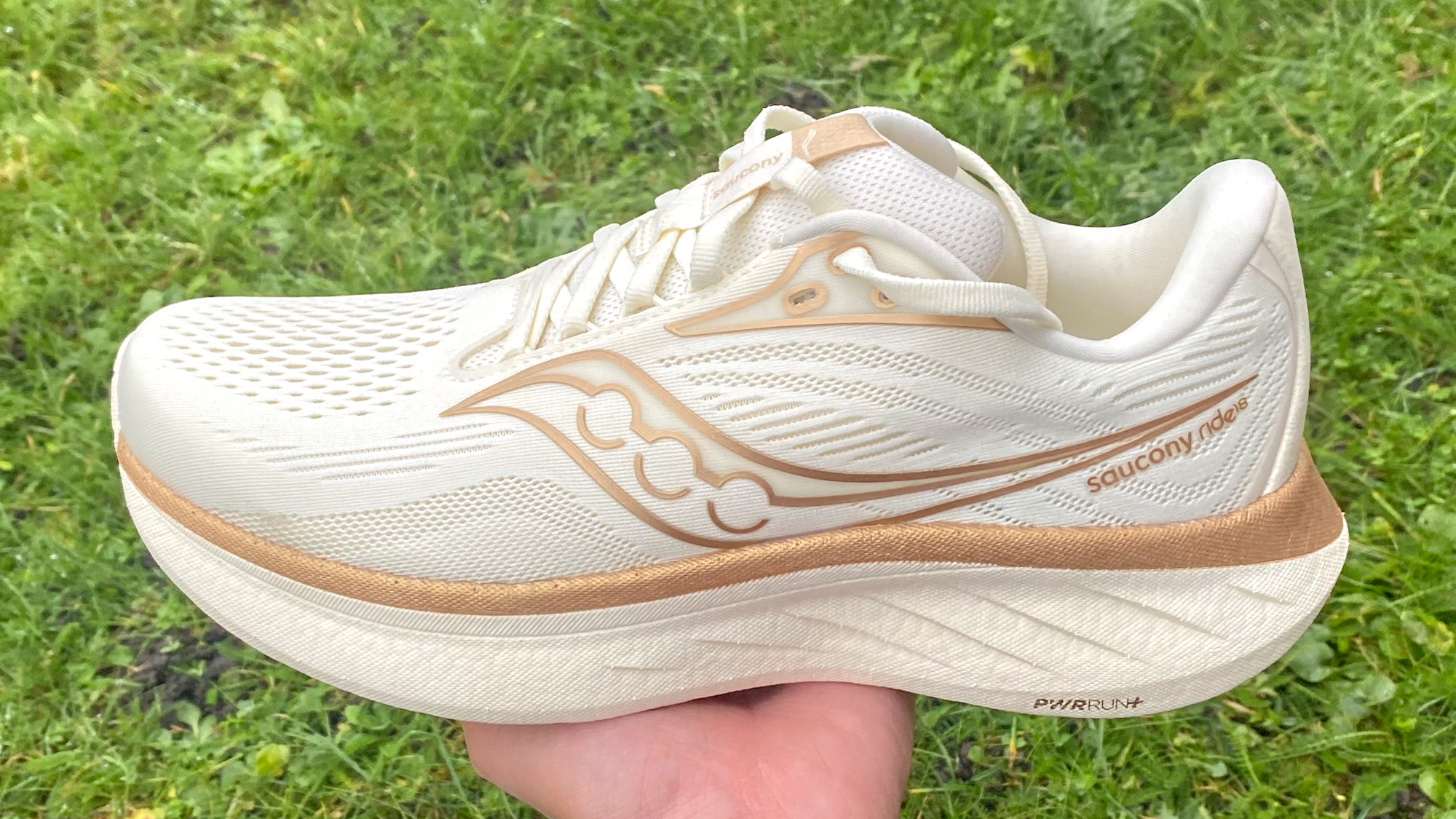
Specifications
Reasons to buy
Reasons to avoid
If you're new to running and looking for a no-fuss, no-frills shoe, the Saucony Ride 18 is a great place to start. You don’t need to wade through the noise of max-cushioned, carbon-plated super shoes—this is a reliable daily trainer that’s comfortable, protective and has just plenty of bounce to keep you going.
The PWRRUN+ midsole (the layer between the bottom and top of the shoe that absorbs impact) delivers a well-balanced mix of comfort and responsiveness. During testing, I clocked a variety of runs including a couple of 15+ mile runs, and this shoe kept the life in my stride right to the end. It’s not the speediest for interval sessions, but it still has a nice pop and works as a great all-rounder.
The Ride 18 fits true to size, with wide-fit options and a refreshed upper that’s stretchier, more breathable, and cushioned around the heel for extra comfort. Plus, despite the Ride 18 being an upgrade, Saucony has launched it at $5 less than the Ride 17.
Not only is this a versatile and reliable pick for beginners, but it’s also an easy fuss-free ride for experienced runners who want good bang for their buck.
Tester: Jessica Downey
- Read our full Saucony Ride 18 review
Best running shoe for racing
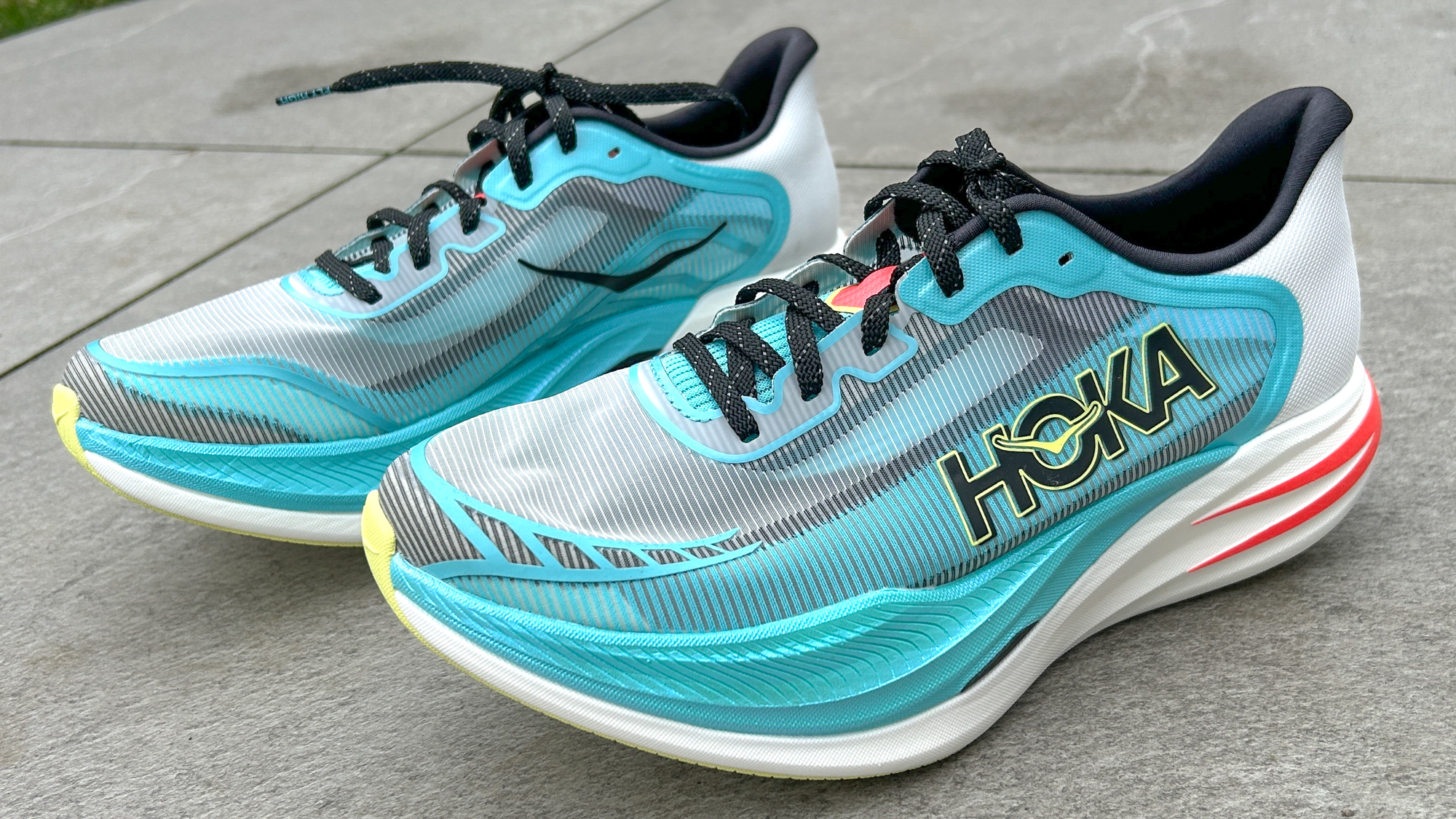
Specifications
Reasons to buy
Reasons to avoid
The Hoka Cielo X1 2.0 is our pick for the best racing shoe because it delivers everything you want on race day: speed, bounce, and a lightweight feel that propels you forward. We put this shoe through its paces in tough training sessions, including tempo runs and long progression workouts, and it consistently felt fast, bouncy, and propulsive.
Hoka made significant changes to the original Cielo X1 to make the 2.0 a true competitor among carbon-plated racing shoes. It is noticeably lighter, dropping from 8.9oz to 7.5oz in a men’s US 9.5, creating a difference in how quick and effortless it feels at high speeds.
The shoe has an aggressive rocker shape that propels you forward with each stride. Meanwhile, the dual-layer PEBA foam uses two lightweight, springy layers that absorb impact and bounce back, giving you a responsive feel ideal for race day.
Grip has also improved, with Hoka using a new sticky rubber outsole that offers better traction on wet roads. However, stability takes a hit compared to the original. The shoe has a narrower base and large cutouts to save weight, making it best suited for runners who prioritize speed over support.
Tester: Nick Harris-Fry
Best running shoe for flat feet
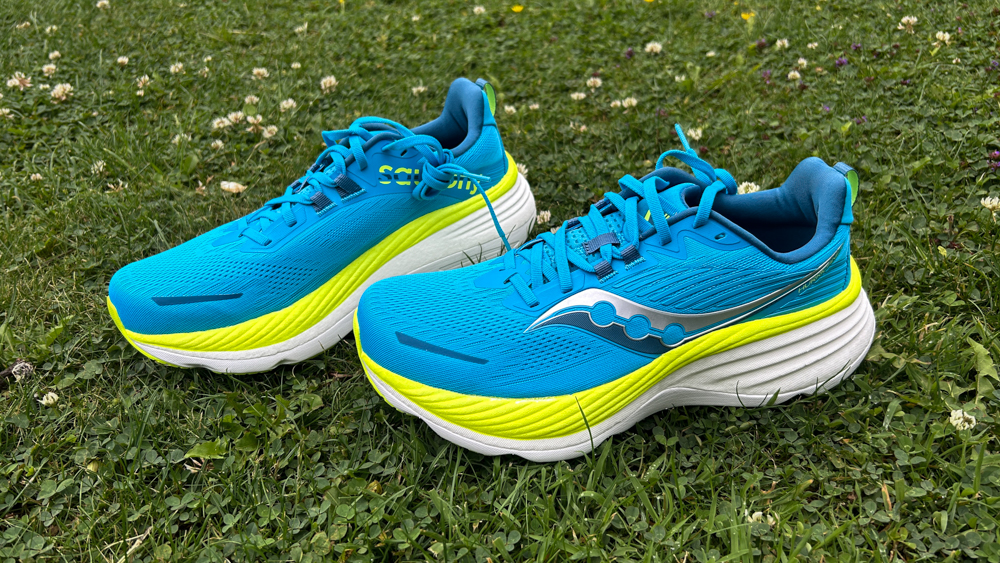
Specifications
Reasons to buy
Reasons to avoid
The Saucony Hurricane 24 is an impressive cushioned stability shoe designed for those who prioritize comfort and support during their runs. It’s a significant upgrade from its predecessor, featuring a higher stack height, an updated rocker, and improved midsole foams, which make it one of the most comfortable shoes for easy and long runs. While it's a bit heavier than some other options on the market, our testing proved to us that the extra weight is offset by the plush cushioning and smooth ride it provides.
The dual-density midsole, which uses Saucony’s PWRRUN PB foam for a soft and bouncy feel, and a firmer PWRRUN frame for added support, ensures that your foot feels cradled during every step. The wide base and high sidewalls of the shoe add to its stability, making it an excellent choice for runners who overpronate or those who need additional support, even on longer runs.
What stood out the most during our testing was the smooth rocker, which creates an effortless transition from heel to toe. This feature really helps make longer distances feel more manageable, allowing you to keep moving comfortably without tiring quickly.
Although the Hurricane 24 may not be the best option for fast-paced runs due to its heavier weight, it truly excels in easy miles and long runs, offering a cushioned and stable ride. Neutral runners can also enjoy the comfort it provides, despite being a stability shoe, as the support comes from its design rather than traditional medial posts.
Tester: Jessica Downey, Nick Harris-Fry
- Read our full Saucony Hurricane 24 review
Best sustainable running shoe
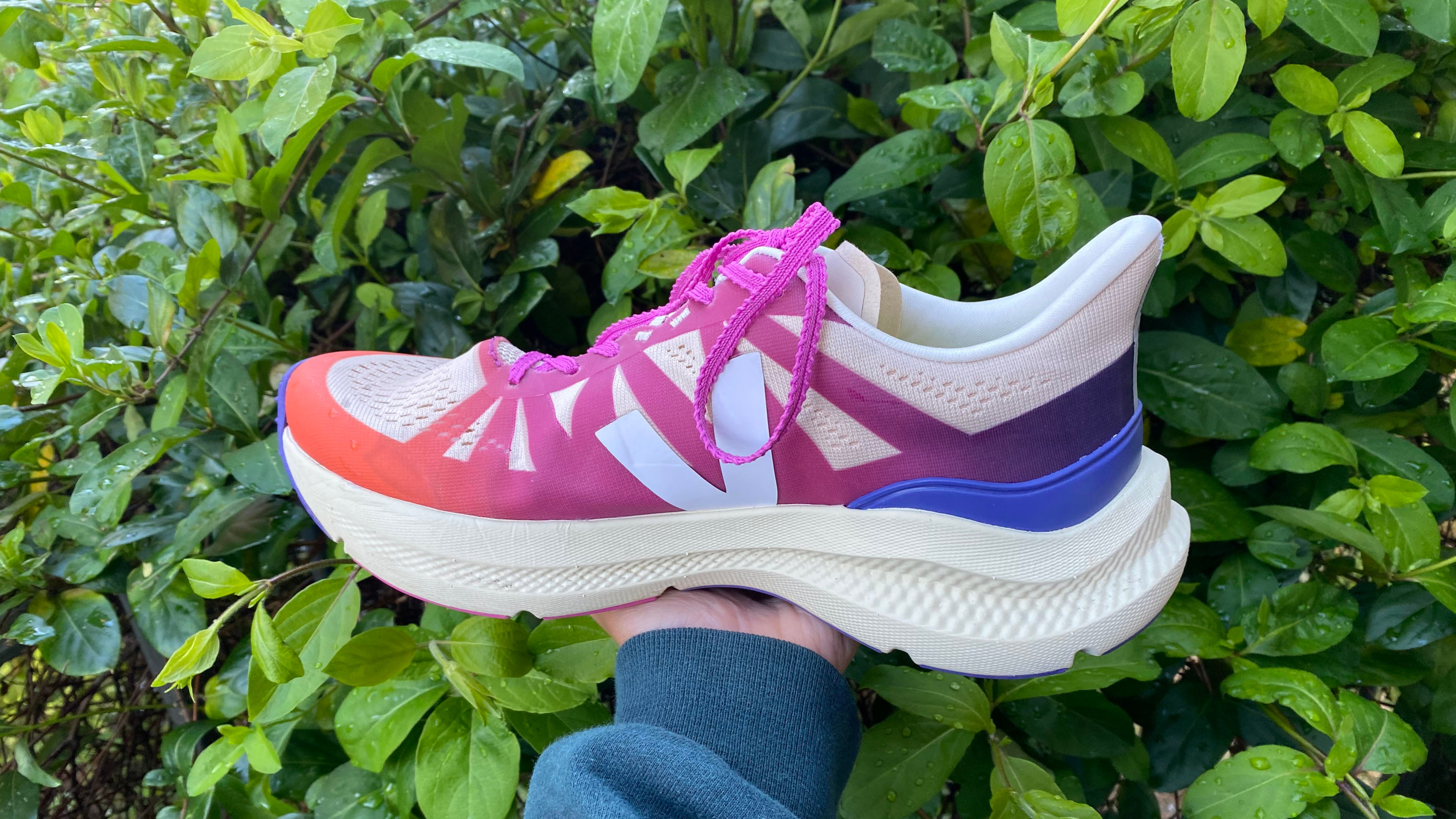
Specifications
Reasons to buy
Reasons to avoid
Finding a high-performing pair of running shoes made from environmentally conscious materials can be a real challenge. Sustainable materials can struggle to match the durability, flexibility, and lightweight properties of common synthetic alternatives. However, the Veja Condor 3 stands out as an exception.
We found the Condor 3 to be exceptionally comfortable for our daily miles, with eco-friendlier materials such as recycled polyester, sugar cane, and Amazonian rubber. The midsole, which combines sugar cane-based EVA and Amazonian rubber, provides a spongy feel and a smooth, cruisey ride. This shoe is perfect for easy, relaxed runs, can handle longer distances too, and has become a favorite walking shoe of mine. That said, it's a bit on the bulkier side, making it less ideal for speed work.
In addition to its performance, the Condor 3 scores high on style—no surprise, coming from a French footwear brand. It's the kind of running shoe that looks just as good off the track as on it, without screaming "I'm a runner!" We've received plenty of compliments on its aesthetic, from runners and non-runners alike.
While it might be a bit pricier than some less versatile trainers, the cost feels justified when considering the sustainable materials and practices behind both the brand and the shoe.
Tester: Jessica Downey
- Read our full Veja Condor 3 review
Best value running shoe
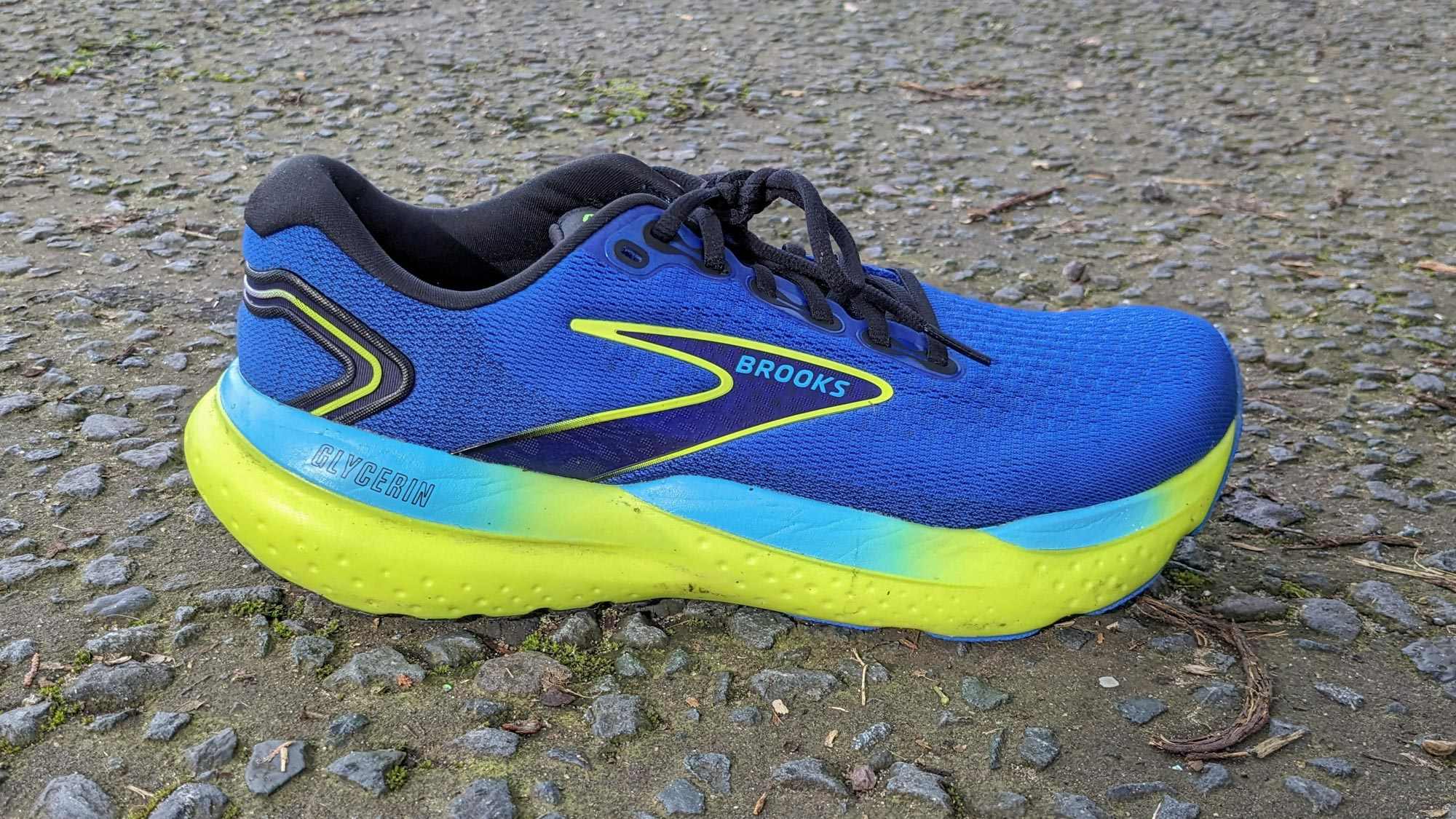
Specifications
Reasons to buy
Reasons to avoid
This upgraded version of Brooks' softest shoe upholds the series' reputation as a comfortable every day pair. They're slightly lighter than the Brooks Glycerin 20, but with the same 10mm drop.
They also retain the previous edition's DNA Loft V3 midsole foam, making them ideal for short runs or long slow-paced sessions. But they're supportive enough for when you need to pick up some speed as well.
There are some modest upgrades elsewhere, with a redesigned upper which is just as comfortable as before, but feels slightly thicker and less breathable. Still, the new padding on the tongue and heel collar felt comfortable during our testing.
Overall, we found that the Glycerin 21 kept the Glycerin 20's focus on durability and comfort, but the lower weight was a welcome change. There may not be enough difference to warrant an upgrade from the 20, but the Glycerin 21 are an excellent, budget-friendly introduction to every day running shoes.
Tester: Nick Harris-Fry
- Read our full Brooks Glycerin 21 review
Best running shoe for versatility
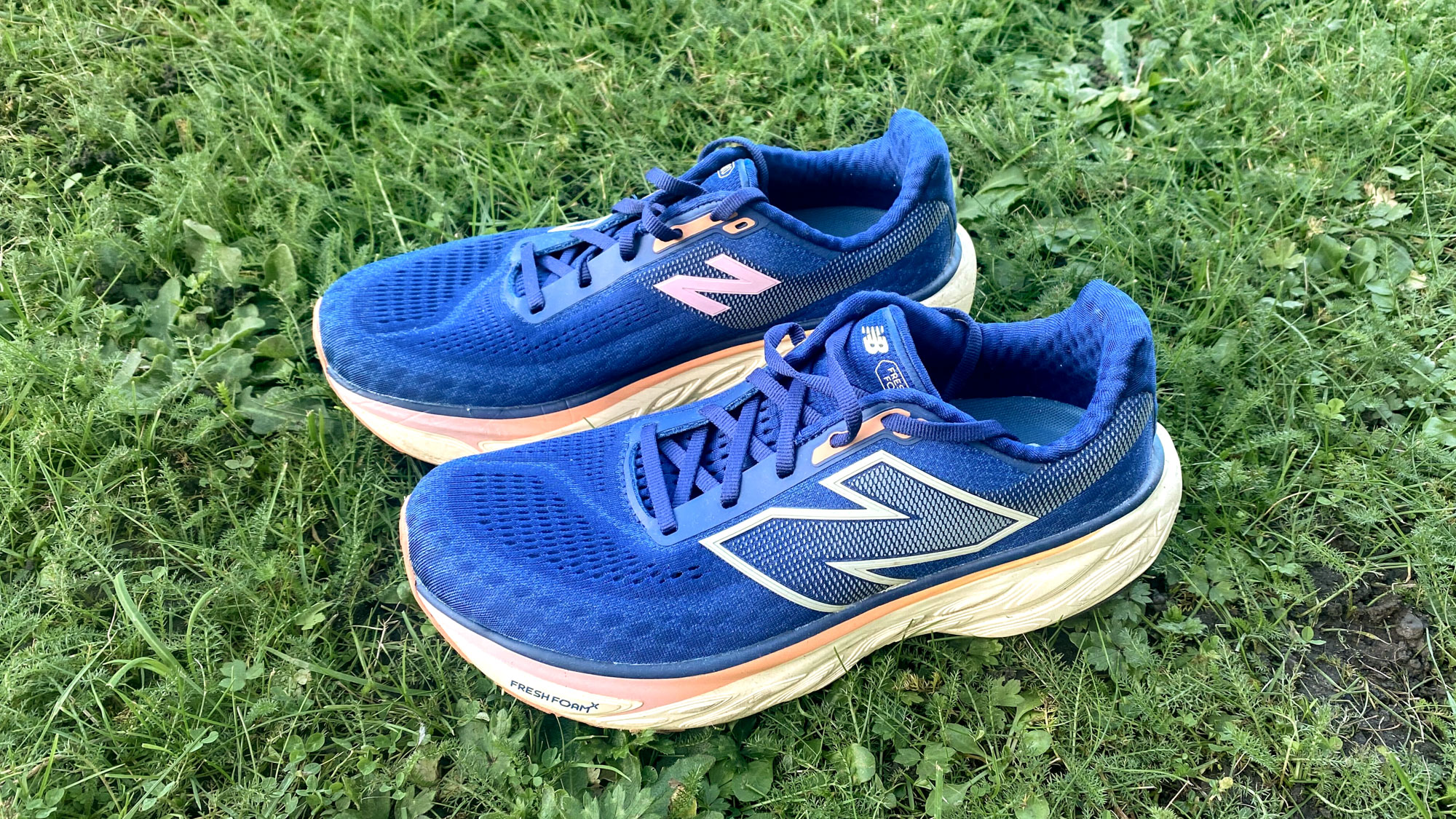
Specifications
Reasons to buy
Reasons to avoid
The New Balance Fresh Foam X 1080v14 is a true all-rounder for runners of all levels looking for a shoe that can handle everything from easy miles, to longer sessions, to tempo runs. Having tested it across a variety of runs, I found it delivers the perfect balance of cushioning, responsiveness, and comfort.
At the heart of the 1080v14 is Fresh Foam X, New Balance’s premium cushioning. Having tested this shoe's predecessor, the New Balance Fresh Foam X 1080 v13, I found the v14's foam provided a soft yet slightly firmer feel. This means it absorbs impact well on long runs but still has enough spring to keep you moving smoothly when picking up the pace. The shoe’s rocker-like shape helps create a smooth transition from landing to toe-off, making each stride feel natural and effortless. This is especially useful if you’re running on tired legs or working on maintaining good form over longer distances.
Unlike some max-cushioned shoes that can feel overly plush or bulky, the 1080v14 finds the sweet spot between softness and responsiveness. The wider base adds extra stability and the breathable triple-jacquard mesh upper holds the foot securely without feeling restrictive.
While it’s not the lightest shoe, it feels balanced and comfortable across different paces. Whether you're a beginner looking for a reliable first running shoe or a seasoned runner wanting a durable, cushioned trainer, this shoe delivers.
Tester: Nick Harris-Fry
- Read our full New Balance 1080v14 review
Best stability running shoe
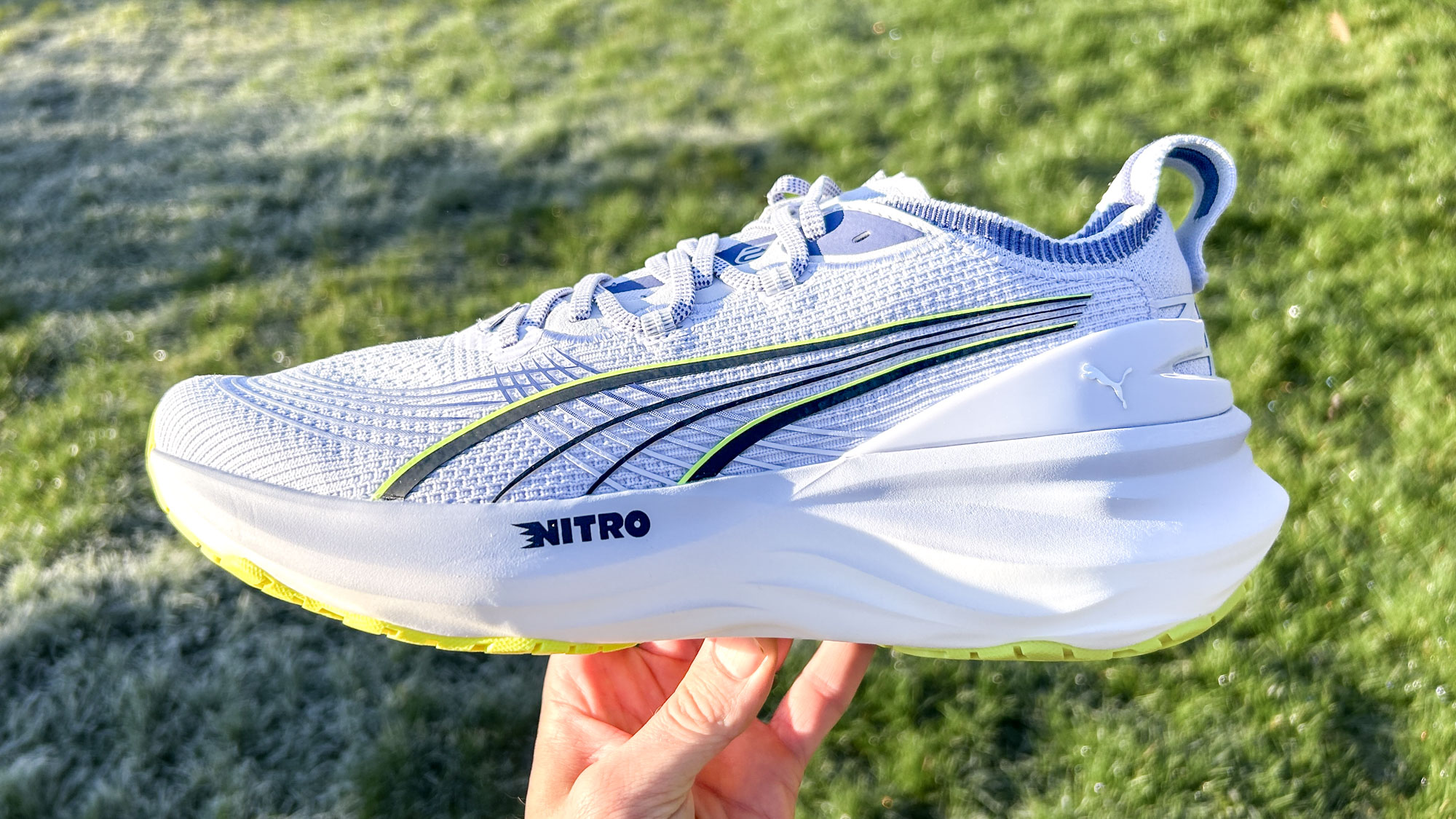
Specifications
Reasons to buy
Reasons to avoid
The Puma ForeverRun Nitro 2 is a well-cushioned stability shoe that delivers support without feeling rigid. Its wider base and dual-density midsole provide extra stability, and make it a solid choice for runners who need more support, whether they overpronate or just prefer a steadier ride. The plush Nitro foam midsole is both soft, responsive, and comfortable whether you're eating up big miles in this shoe or cruising through some easy, recovery miles.
While heavier than its predecessor, the extra weight comes from a higher stack height and reinforced structure, which we found is what makes this a fantastic stability shoe. Meanwhile, the PumaGrip outsole offers excellent traction making sure you feel secure in wet and slippery conditions. A secure, well-padded upper adds to the overall comfort, while a sturdy heel counter locks the foot in place without feeling restrictive.
Though designed as a stability shoe, the ForeverRun Nitro 2 also works well for neutral runners who simply appreciate a cushioned and supportive daily trainer. We found in testing that it's best suited for easy and long runs, though it can handle some faster efforts if needed.
Tester: Nick Harris-Fry
- Read our full Puma ForeverRun Nitro 2
Best trail running shoe
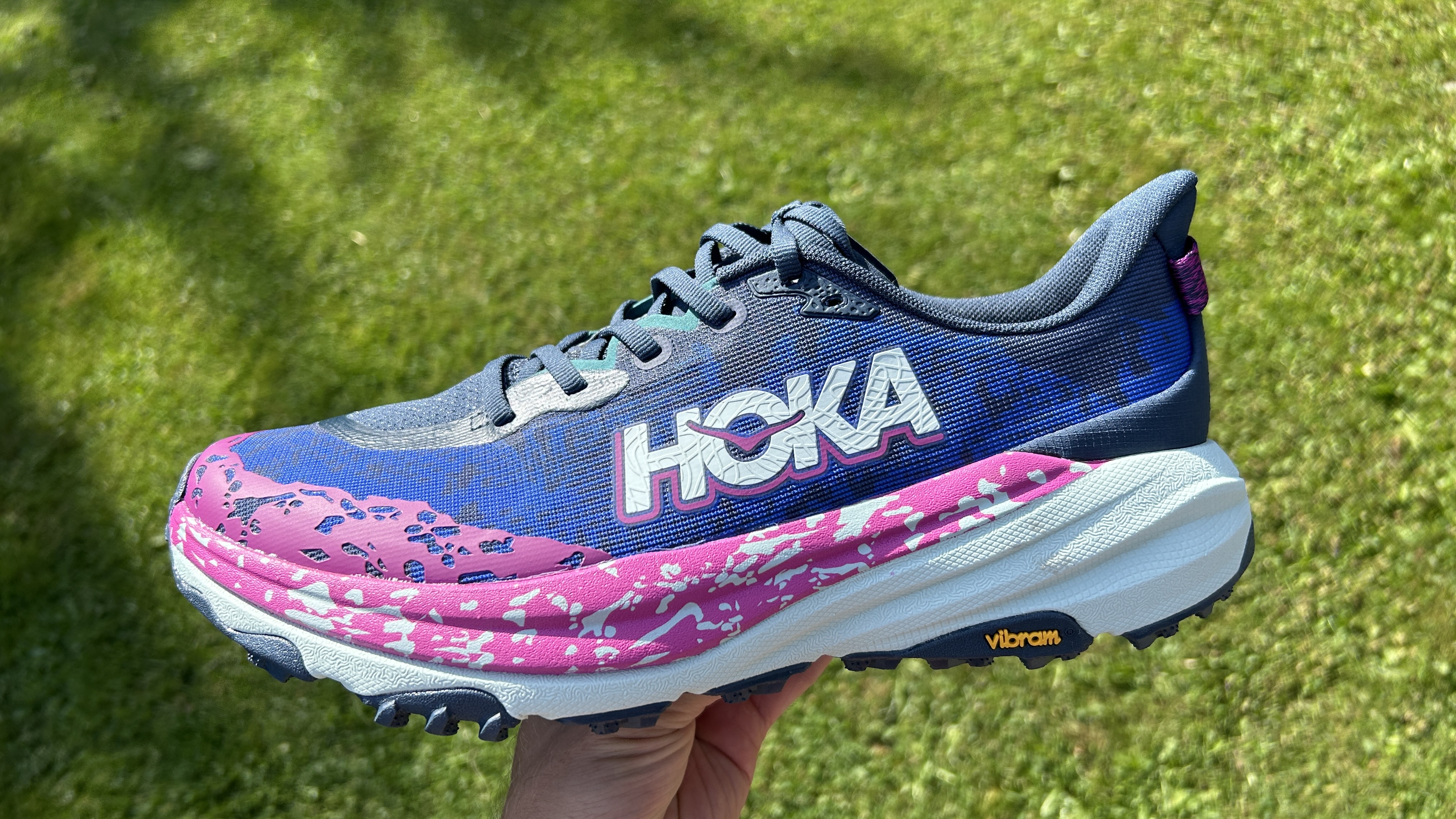
10. Hoka Speedgoat 6
Specifications
Reasons to buy
Reasons to avoid
After testing the Hoka Speedgoat 6, we found it offers a solid mix of comfort and performance for various trail conditions and is what we look for in a pair of the best trail-running shoes. It’s available in six colors for both men’s and women’s versions, with most options offered in both standard and wide widths.
The midsole is crafted from CMEVA, which is similar to the Speedgoat 5’s but with updated properties: it’s firmer, lighter, and slightly more responsive. In our experience, the feel remains comfortable, though the firmer material gives it a more agile edge, particularly useful for faster-paced trail sessions.
As with many Hoka models, the Speedgoat 6 runs slightly narrow in the toe box, which we noticed during longer test runs. For those who prefer a bit more room—especially if you’re tackling ultramarathons—you might consider sizing up a half size for added comfort.
Our overall thoughts on the Spedgoat 6 is it's a trail shoe versatile enough for anything from ultramarathons to quick, short trail races and everything in between.
Tester: Nick Harris-Fry
- Read our full Hoka Speedgoat 6 review
How to choose the best running shoes for you
When it comes to finding the best pair of running shoes for you, there are a few different things to consider. Firstly, how you run. Before investing in a pair of shoes, it's a good idea to head to a running store and have your gait checked. If you overpronate dramatically, you might be better off in a stability shoe to prevent injury.
Secondly, where you plan on running. If you're planning on doing most of your miles on the pavements around your neighbourhood, you'll want a road shoe that's designed to help cope with the impact.
If you're hoping to go off exploring in the trails, you'll want a trail shoe with an outsole designed to be grippy on rocky, muddy and wet terrains. If it's a PB you're after, you're likely to want a racing shoe, which will have various features designed to get you a fast finish, for example, carbon fiber plates and snappy, reactive midsoles.
Lastly, how often you run. A marathon runner will have different requirements when shopping for running shoes than a runner who clocks the odd 5K. If running isn't really your thing, it's just something you do in the gym now and again, you'll probably want a more affordable shoe.
Also tested
Brands are constantly releasing new running shoes onto the market, and we strive to test as many as we can. Not every pair makes our list because it's our job to weigh up which are worth your money.
If you want to see some other good options that may have something you like in them, here are other options that didn't quite make the cut.
Hoka Skyward X
We had good fun running in the Hoka Skyward X. It’s an extremely cushioned shoe that also provides stability and smooth transitions. However, its massive stack height is a little too heavy for faster training sessions and race day and we think you can find a better alternative for less.
Read our full Hoka Skyward X review
The On Cloudsurfer 2 didn’t make our list because it’s not as versatile for faster paces, which held it back from snagging the crown as the best daily trainer. However, it’s still a fantastic option for comfortable, effortless runs that feel great.
Read our full On Cloudsurfer 2 review
FAQs
What shoes to expect in 2025
2025 is already shaping up to be an exciting year for running shoes, with brands rolling out major announcements and plenty of speculation about what’s to come.
The Saucony Ride 18 has already hit the shelves, and we’ll have a full review coming soon after putting it through its paces. Meanwhile, our tester and senior fitness writer, Nick Harris-Fry, has already tested and reviewed the Hoka Clifton 10, which will officially launch in April.
Hoka has also confirmed the upcoming Cielo X1 2.0 and Mach 3, promising updates to some of its fastest shoes. Over at Brooks, the Hyperion 4 PB is set to land this year. Rumors suggest we could see the Nike Vaporfly 4 as early as April, a release that will no doubt have marathon runners and racing fans on high alert. Saucony is also expected to expand its lineup with the Endorphin Elite 2.
Stay tuned for reviews and hands-on testing as we put the latest models through their paces.
How should running shoes fit?
We spoke to Tony Poland, an expert in sports, rehabilitation, and recovery bodywork who has served on the US Olympic Medical Support Teams in London and Tokyo and on the US Olympic Committee Medical Team in Rio de Janeiro.
"You’re going to want a snug fit everywhere except at the toe. Don’t be afraid of a little extra room around the toes. You want some space in the toe box because too much constriction can lead to injury," Poland explains.
"Your toes should not hit the end of your shoe at rest, and you should always be able to wiggle them around." According to Poland, this is a very foreign concept to most people.
Often people end up wearing shoes that are actually too small. When in doubt, try out a shoe in your usual size, then try one a half size up from that.
How long should a pair of running shoes last?
The lifespan of a running shoe varies depending on factors like your training volume and the terrain you run on. For example, carbon fiber racing shoes typically don’t last as long as cushioned trainers, and avid trail runners may find their shoes wear out faster due to the rugged surfaces they tackle.
As a general rule, most running shoes are designed to last between 300 and 500 miles. However, if your shoes feel less cushioned than they once did, or if noticeable wear and tear is impacting their performance, it’s time to invest in a new pair.
When I remember, I log which shoes I wear for each run on my best Garmin watch and Strava. This helps me track how many miles I’ve clocked in them. Strava even offers a handy feature that notifies you when you’ve reached a certain mileage in a pair of running shoes, so you know when it’s time to consider a replacement.
What is a neutral running shoe?
For a long time, running shoe brands categorized their shoes are neutral or stability, and which you'd choose would depend on whether your foot rolled over your ankle as you hit the ground (overpronation).
Stability shoes often have a hard medial post alongside the arch of the shoe, while neutral shoes are more flexible and cushioned, suited to those who don't overpronate. However, most brands have developed more versatile support designs now.
But many shoes are still termed neutral, so if you have medium or high arches, you might find these more comfortable for running. And there are plenty of insertable insoles you can buy that address overpronation.
Can you use running shoes for walking?
You can definitely head out on a walk in running shoes, but they're generally better suited to everyday walks rather than hiking or extended time outside. You will also wear them down quicker if you do a lot of walking in them. If you need something with more ankle support for uneven terrain, consider a pair of the best hiking boots instead.
Are running shoes waterproof?
The best trail running shoes are designed for wet or slippery conditions and are generally water-resistant and quick-drying. But most running shoes aren't, as the focus is on comfort and breathability.
The upper of the running shoe is designed to hold as little moisture (from water, rain or sweat) as possible so that the shoe stays lightweight and comfortable.
Do men’s and women’s shoes fit differently?
There's a perception that men's and women's running shoes are the same, just in different colors. That's not quite right, though. Women's feet are often narrower and smaller, so the women's edition of a shoe reflects this.
It can be hard to spot these differences visually, as they're usually quite minute changes to the fit, construction, and cushioning. However, some high-end race shoes have a unisex fit, designed to accommodate both.
Sign up to get the BEST of Tom's Guide direct to your inbox.
Get instant access to breaking news, the hottest reviews, great deals and helpful tips.
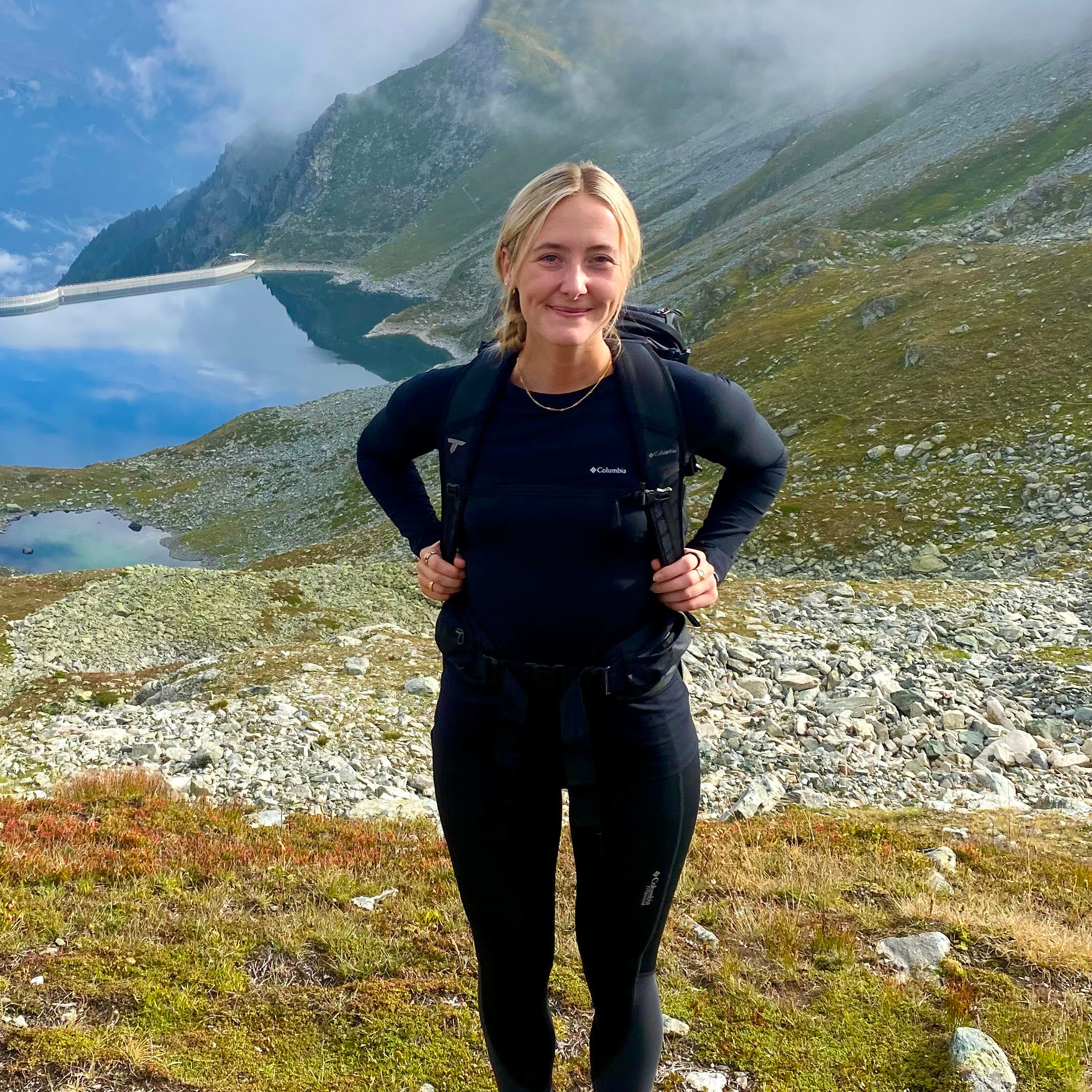
Jessica has been a fitness writer at Tom’s Guide since 2023, bringing three years of experience writing about health, fitness, and the great outdoors. Her passion for exercise began during her childhood, where she spent weekends hiking and competing in local athletics club events. After earning a master’s degree in journalism from Cardiff University, Jessica found the perfect way to combine her love of storytelling and fitness into a career.
Jessica is passionate about testing fitness gear and tech, using her reviews to help readers make informed buying decisions. She ran her first marathon in April 2024, finishing it in 3 hours and 48 minutes. Through her training, she’s developed a deep understanding of what it takes to grow as a runner, from effective workouts and recovery techniques to selecting the right gear for every challenge.
When she’s not at her desk, Jessica enjoys spending time in the kitchen crafting new recipes, braving cold water swims and hiking.
- Jane McGuireFitness editor
- Nick Harris-FrySenior Writer
